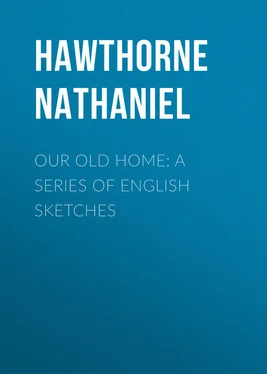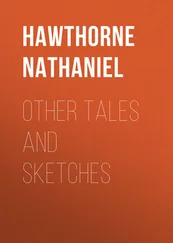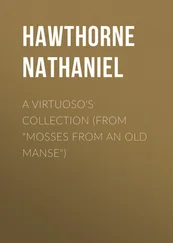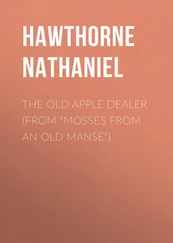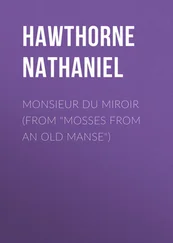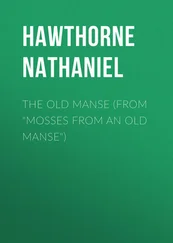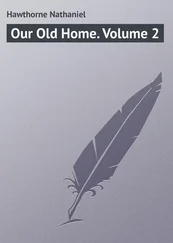Nathaniel Hawthorne - Our Old Home - A Series of English Sketches
Здесь есть возможность читать онлайн «Nathaniel Hawthorne - Our Old Home - A Series of English Sketches» — ознакомительный отрывок электронной книги совершенно бесплатно, а после прочтения отрывка купить полную версию. В некоторых случаях можно слушать аудио, скачать через торрент в формате fb2 и присутствует краткое содержание. Жанр: literature_19, foreign_antique, foreign_prose, на английском языке. Описание произведения, (предисловие) а так же отзывы посетителей доступны на портале библиотеки ЛибКат.
- Название:Our Old Home: A Series of English Sketches
- Автор:
- Жанр:
- Год:неизвестен
- ISBN:нет данных
- Рейтинг книги:4 / 5. Голосов: 1
-
Избранное:Добавить в избранное
- Отзывы:
-
Ваша оценка:
- 80
- 1
- 2
- 3
- 4
- 5
Our Old Home: A Series of English Sketches: краткое содержание, описание и аннотация
Предлагаем к чтению аннотацию, описание, краткое содержание или предисловие (зависит от того, что написал сам автор книги «Our Old Home: A Series of English Sketches»). Если вы не нашли необходимую информацию о книге — напишите в комментариях, мы постараемся отыскать её.
Our Old Home: A Series of English Sketches — читать онлайн ознакомительный отрывок
Ниже представлен текст книги, разбитый по страницам. Система сохранения места последней прочитанной страницы, позволяет с удобством читать онлайн бесплатно книгу «Our Old Home: A Series of English Sketches», без необходимости каждый раз заново искать на чём Вы остановились. Поставьте закладку, и сможете в любой момент перейти на страницу, на которой закончили чтение.
Интервал:
Закладка:
Nathaniel Hawthorne
Our Old Home: A Series of English Sketches
To Franklin Pierce,
As a Slight Memorial of a College Friendship, prolonged through Manhood, and retaining all its Vitality in our Autumnal Years,
This Volume is inscribed by NATHANIEL HAWTHORNE.
I have not asked your consent, my dear General, to the foregoing inscription, because it would have been no inconsiderable disappointment to me had you withheld it; for I have long desired to connect your name with some book of mine, in commemoration of an early friendship that has grown old between two individuals of widely dissimilar pursuits and fortunes. I only wish that the offering were a worthier one than this volume of sketches, which certainly are not of a kind likely to prove interesting to a statesman in retirement, inasmuch as they meddle with no matters of policy or government, and have very little to say about the deeper traits of national character. In their humble way, they belong entirely to aesthetic literature, and can achieve no higher success than to represent to the American reader a few of the external aspects of English scenery and life, especially those that are touched with the antique charm to which our countrymen are more susceptible than are the people among whom it is of native growth.
I once hoped, indeed, that so slight a volume would not be all that I might write. These and other sketches, with which, in a somewhat rougher form than I have given them here, my journal was copiously filled, were intended for the side-scenes and backgrounds and exterior adornment of a work of fiction of which the plan had imperfectly developed itself in my mind, and into which I ambitiously proposed to convey more of various modes of truth than I could have grasped by a direct effort. Of course, I should not mention this abortive project, only that it has been utterly thrown aside and will never now be accomplished. The Present, the Immediate, the Actual, has proved too potent for me. It takes away not only my scanty faculty, but even my desire for imaginative composition, and leaves me sadly content to scatter a thousand peaceful fantasies upon the hurricane that is sweeping us all along with it, possibly, into a Limbo where our nation and its polity may be as literally the fragments of a shattered dream as my unwritten Romance. But I have far better hopes for our dear country; and for my individual share of the catastrophe, I afflict myself little, or not at all, and shall easily find room for the abortive work on a certain ideal shelf, where are reposited many other shadowy volumes of mine, more in number, and very much superior in quality, to those which I have succeeded in rendering actual.
To return to these poor Sketches; some of my friends have told me that they evince an asperity of sentiment towards the English people which I ought not to feel, and which it is highly inexpedient to express. The charge surprises me, because, if it be true, I have written from a shallower mood than I supposed. I seldom came into personal relations with an Englishman without beginning to like him, and feeling my favorable impression wax stronger with the progress of the acquaintance. I never stood in an English crowd without being conscious of hereditary sympathies. Nevertheless, it is undeniable that an American is continually thrown upon his national antagonism by some acrid quality in the moral atmosphere of England. These people think so loftily of themselves, and so contemptuously of everybody else, that it requires more generosity than I possess to keep always in perfectly good-humor with them. Jotting down the little acrimonies of the moment in my journal, and transferring them thence (when they happened to be tolerably well expressed) to these pages, it is very possible that I may have said things which a profound observer of national character would hesitate to sanction, though never any, I verily believe, that had not more or less of truth. If they be true, there is no reason in the world why they should not be said. Not an Englishman of them all ever spared America for courtesy's sake or kindness; nor, in my opinion, would it contribute in the least to our mutual advantage and comfort if we were to besmear one another all over with butter and honey. At any rate, we must not judge of an Englishman's susceptibilities by our own, which, likewise, I trust, are of a far less sensitive texture than formerly.
And now farewell, my dear friend; and excuse (if you think it needs any excuse) the freedom with which I thus publicly assert a personal friendship between a private individual and a statesman who has filled what was then the most august position in the world. But I dedicate my book to the Friend, and shall defer a colloquy with the Statesman till some calmer and sunnier hour. Only this let me say, that, with the record of your life in my memory, and with a sense of your character in my deeper consciousness as among the few things that time has left as it found them, I need no assurance that you continue faithful forever to that grand idea of an irrevocable Union, which, as you once told me, was the earliest that your brave father taught you. For other men there may be a choice of paths, – for you, but one; and it rests among my certainties that no man's loyalty is more steadfast, no man's hopes or apprehensions on behalf of our national existence more deeply heartfelt, or more closely intertwined with his possibilities of personal happiness, than those of FRANKLIN PIERCE.
THE WAYSIDE, July 2, 1863.CONSULAR EXPERIENCES
The Consulate of the United States, in my day, was located in Washington Buildings (a shabby and smoke-stained edifice of four stories high, thus illustriously named in honor of our national establishment), at the lower corner of Brunswick Street, contiguous to the Gorec Arcade, and in the neighborhood of scone of the oldest docks. This was by no means a polite or elegant portion of England's great commercial city, nor were the apartments of the American official so splendid as to indicate the assumption of much consular pomp on his part. A narrow and ill-lighted staircase gave access to an equally narrow and ill-lighted passageway on the first floor, at the extremity of which, surmounting a door-frame, appeared an exceedingly stiff pictorial representation of the Goose and Gridiron, according to the English idea of those ever-to-be-honored symbols. The staircase and passageway were often thronged, of a morning, with a set of beggarly and piratical-looking scoundrels (I do no wrong to our own countrymen in styling them so, for not one in twenty was a genuine American), purporting to belong to our mercantile marine, and chiefly composed of Liverpool Blackballers and the scum of every maritime nation on earth; such being the seamen by whose assistance we then disputed the navigation of the world with England. These specimens of a most unfortunate class of people were shipwrecked crews in quest of bed, board, and clothing, invalids asking permits for the hospital, bruised and bloody wretches complaining of ill-treatment by their officers, drunkards, desperadoes, vagabonds, and cheats, perplexingly intermingled with an uncertain proportion of reasonably honest men. All of them (save here and there a poor devil of a kidnapped landsman in his shore-going rags) wore red flannel shirts, in which they had sweltered or shivered throughout the voyage, and all required consular assistance in one form or another.
Any respectable visitor, if he could make up his mind to elbow a passage among these sea-monsters, was admitted into an outer office, where he found more of the same species, explaining their respective wants or grievances to the Vice-Consul and clerks, while their shipmates awaited their turn outside the door. Passing through this exterior court, the stranger was ushered into an inner privacy, where sat the Consul himself, ready to give personal attention to such peculiarly difficult and more important cases as might demand the exercise of (what we will courteously suppose to be) his own higher judicial or administrative sagacity.
Читать дальшеИнтервал:
Закладка:
Похожие книги на «Our Old Home: A Series of English Sketches»
Представляем Вашему вниманию похожие книги на «Our Old Home: A Series of English Sketches» списком для выбора. Мы отобрали схожую по названию и смыслу литературу в надежде предоставить читателям больше вариантов отыскать новые, интересные, ещё непрочитанные произведения.
Обсуждение, отзывы о книге «Our Old Home: A Series of English Sketches» и просто собственные мнения читателей. Оставьте ваши комментарии, напишите, что Вы думаете о произведении, его смысле или главных героях. Укажите что конкретно понравилось, а что нет, и почему Вы так считаете.
